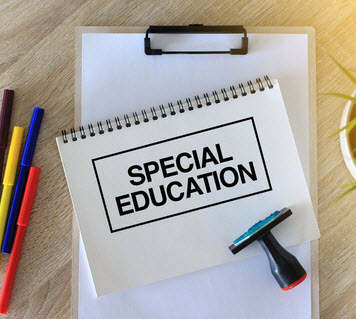Possibly. If your child is not receiving the support he or she needs from his or her school, you might need to work with a special education lawyer to pursue legal action to secure an appropriate Individualized Education Program (IEP) for him or her. Although this might not seem like an area where a lawyer can be of help to you and your family, the truth is that your child has certain rights under the law that can be overlooked or disregarded if you do not take action to protect them. Discuss these rights with a lawyer before you move forward with developing your child’s education plan.
Advocating for your Child
Meetings with teachers and school administrators can be stressful for a parent. During high-stress interactions like this, it can be easy to forget the questions you want to ask or feel intimidated into leaving your concerns unvoiced. Of course you want what is best for your child and in nearly all cases, so do the educators who work with him or her. But in some cases, these educators do not have enough information about your child or his or her rights to create the ideal IEP.
A few examples of your child’s rights in the classroom under the federal Individuals with Disabilities Education Act (IDEA) include:
- Students with the 13 conditions included in the act are entitled to receive special education if their conditions adversely affect their ability to perform academically;
- The right to continue to receive educational services until age 21 if he or she remains in school to that age;
- Transition planning for life beyond high school once he or she reaches the age of 16; and
- You and your child’s school must work with the procedural guidelines included in IDEA to complete his or her evaluation, IEP meetings, and conflict resolution.
This final bullet point refers to a large body of information that you should discuss with your special education lawyer before you begin the process of working with your child’s school to determine an appropriate education plan.
IDEA’s Procedural Guidelines
IDEA’s set of 15 procedural guidelines exist to protect a student and his or her parents’ rights. These rights include your child’s right to confidentiality, your right to be included in all IEP meetings, your right to receive a written explanation of all procedural safeguards in place in language you can understand, and your right to seek an Independent Educational Evaluation, a third party evaluation of your child’s academic abilities.
Work with an Experienced Winter Park Special Education Lawyer
Every child has the right to an appropriate education for his or her abilities. If you are having difficulty securing special education services for your child, consider working with an experienced special education lawyer in Winter Park to advocate for him or her. To learn more, contact Aubrey Law to set up your initial consultation with our firm.
Resource:
understood.org/en/school-learning/your-childs-rights/basics-about-childs-rights/important-safeguards-for-you-and-your-child

